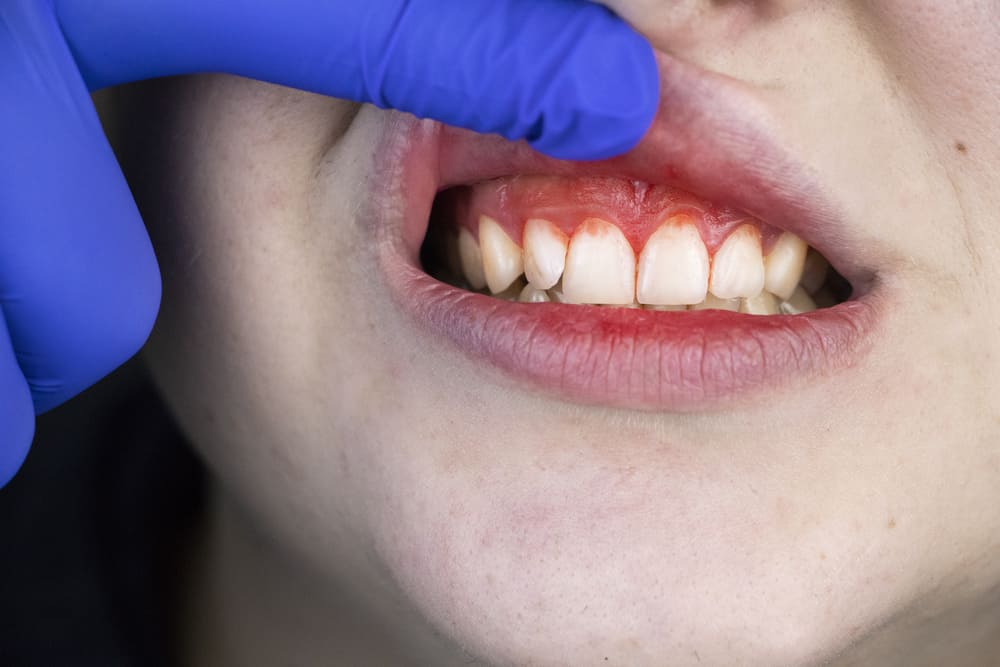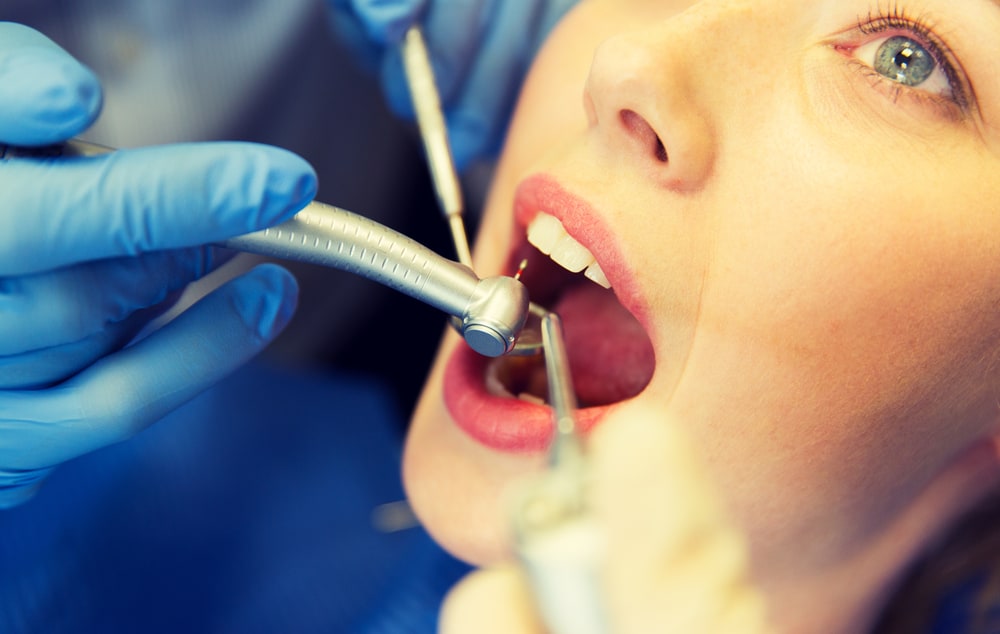Do you know what causes gum disease and how to prevent it?
Gum disease is a serious condition that can lead to tooth loss and other health problems.
In this article, we will explore the causes of gum disease, its risk factors, and the link between diet and smoking, as well as preventive measures and treatment options.
Join us as we look into the causes of gum disease and how to prevent it.
What Is Gum Disease
Gum disease, also known as periodontal disease, is an inflammation of the gums that can cause damage to the bone and tissue that support the teeth. It is a serious condition that can lead to tooth loss if left untreated.
There are different stages of gum disease, ranging from mild inflammation to advanced tissue and bone loss. The most common form of gum disease is gingivitis, which is an inflammation of the gums that can cause redness, swelling, and bleeding. Other symptoms of gum disease include receding gums, bad breath, and loose teeth.
Risk factors for gum disease include plaque build-up, poor oral hygiene, smoking, diabetes, and a family history of gum disease. It is important to recognise the signs of gum disease, such as red or swollen gums, bleeding during brushing or flossing, and tooth decay.
Regular dental visits and proper brushing and flossing can help to reduce the risk of gum disease. If you notice any of the symptoms or risk factors, it is important to speak to your dentist to get a proper diagnosis and treatment.
What Causes Gum Disease
Although gum disease is often caused by poor oral hygiene, there are other contributing factors that can increase the risk of developing it. These can include a sticky film on the teeth called plaque, hormonal changes, genetics, certain systemic diseases, and smoking. Poor oral hygiene practices can cause the plaque to harden and form tartar, which can lead to gum inflammation, loose teeth, bone loss, and sensitive teeth. Additionally, certain medical conditions such as heart disease and diabetes can also increase the risk of developing gum disease.
It is important to have good oral hygiene habits to help reduce the risk of gum disease. Brushing your teeth twice a day, flossing daily, and visiting a dental professional for regular checkups and cleanings can help ensure that your oral health is in good shape. It is important to pay attention to any changes in your gums and teeth, and if you experience any pain or sensitivity, visit your dentist immediately.
Gum disease can have serious consequences for your oral health as well as your overall health. Taking good care of your teeth and gums by brushing, flossing, and visiting the dentist for regular checkups can help reduce the risk of developing gum disease. Additionally, managing any systemic diseases and avoiding smoking can also help protect your soft tissues and reduce the risk of developing gum disease.
Risk Factors for Gum Disease
Certain lifestyle factors can increase an individual’s risk of developing gum disease. Having crooked teeth, a bacterial infection, or not getting professional cleaning can all contribute to a higher risk. Additionally, those with high blood sugar or a history of gum disease may be more likely to experience a severe form of gum disease.
To reduce the risk of gum disease, individuals should practice good oral hygiene habits such as regularly brushing their teeth and flossing. This helps to reduce the inflammation of the gums, as well as prevent the build-up of bacteria that can cause gum disease. Additionally, it is important to visit the dentist regularly for professional cleanings and checkups.
The following are key risk factors for gum disease:
- Crooked teeth
- Bacterial infection
- History of gum disease
- High blood sugar
- Lack of professional cleaning
- Poor oral hygiene habits
- Inflammation of the gums
The Link Between Diet and Gum Disease
Eating certain foods can contribute to the development of gum disease, and therefore it is important to understand the link between diet and gum disease. Poor dental hygiene, such as failing to brush and floss regularly, can lead to plaque build-up on the teeth, which can cause gum tissue to become inflamed and infected. Over time, this can result in a fungal infection that can damage the jaw bone and cause permanent tooth loss. Regular cleanings at the dentist can help to prevent this from happening.
Diet can also play a role in gum disease. Eating a balanced diet rich in vitamins and minerals helps to keep blood sugar levels low, which can help to reduce the risk of gum disease. Eating an unhealthy diet high in sugar and starch can lead to a film of bacteria forming on the teeth, which can cause inflammation and infection in the gums.
Smoking and Gum Disease
Smoking and chewing tobacco can have an adverse effect on gum health and contribute to the development of gum disease. Studies have found that smoking increases the risk of gum disease, as well as causes other oral health problems such as bad breath, discoloured teeth, and a higher risk of oral cancer. Additionally, smoking has been linked to a range of serious cardiovascular diseases, including coronary artery disease.
Smoking leads to more dental plaque build-up, which can then cause periodontal pockets to form around the teeth. This can lead to bone and tissue damage and, eventually, tooth loss. To protect against gum disease, smokers should take a few steps, such as deep cleaning and regular dental visits. As well as brushing and flossing twice a day, smokers should also pay close attention to any signs of gum disease, such as swelling, bleeding or receding gums.
To help treat gum disease, smokers should quit smoking and seek professional treatment from a dentist. This may include deep cleaning, antibiotics, or even surgery. Regular dental visits are also important for monitoring and treating any signs of gum disease. With the right treatment, smokers can reduce their risk of developing gum disease and its associated complications.
- Avoiding smoking and tobacco products
- Seeking professional treatment from a dentist
- Regular dental visits and deep cleaning
- Monitoring for signs of gum disease
How to Prevent Gum Disease
Practising good oral hygiene habits is one of the best ways to prevent gum disease. Brushing, flossing, and rinsing with an antiseptic mouthwash on a regular basis help to prevent the build-up of plaque and the development of gingivitis, the mildest form of gum disease.
It is also important to keep an eye out for dry mouth, which can increase the risk of gum disease, as well as any abnormal growths in the mouth. People should visit their dental professional for regular checkups and cleanings, as dental professionals can detect and treat any signs of gum disease early on.
The American Dental Association (ADA) has a website called Mouth Healthy that provides helpful information about gum disease and its prevention. It is important for people to be aware of the signs and symptoms of gum disease, as well as the risk factors associated with it, so that they can take preventive measures to protect their oral health. People who already have gum disease should talk to their dentist about the best treatment plan for their condition.
The best way to prevent gum disease is to maintain good oral hygiene habits and visit a dental professional regularly. This will help to keep the teeth and gums healthy, as well as the root surfaces of the teeth, and prevent any abnormal growth of gum tissue. People with gum disease should also make sure to follow their dentist’s instructions for proper care and treatment. With proper care and regular checkups, people can keep their teeth and gums healthy and reduce their risk of gum disease.
Signs and Symptoms of Gum Disease
People should be aware of the signs and symptoms of gum disease in order to identify it in its early stages. Symptoms of gum disease can range from mild to severe, depending on the stage of the condition. Factors for gum disease include poor oral hygiene, lifestyle choices, and genetics.
Some of the most common signs and symptoms of gum disease include:
- Severe gum inflammation
- Loss of tissues in and around the tooth root
- Plaque build-up on the tooth root surfaces
If gum disease is left untreated, it can progress to the point where the infected tissue and tooth root are damaged. This can lead to tooth and tissue loss which can be difficult to repair.
It is important to be aware of the signs and symptoms of gum disease, as early detection and treatment can prevent further damage. By practising good oral hygiene and visiting the dentist regularly, you can reduce your risk of developing gum disease.
Treatment Options for Gum Disease
Treatment options for gum disease vary depending on the severity of the condition. Generally, the most common form of gum disease treatment is for periodontitis, which is an advanced form of gum disease. Symptoms of periodontitis include red, swollen gums, receding gums, and an increased risk for infections. The pocket depths around teeth can also increase, leading to the build-up of plaque and tartar.
To treat periodontitis, dentists typically recommend manual toothbrushes with soft bristles, as well as avoiding sugary foods. Additionally, adults who have already experienced gum disease or tooth loss may need more aggressive treatments, such as periodontal treatment. This type of treatment includes deep cleaning of the gums and teeth to remove plaque and tartar build-up. Depending on the severity of the case, antibiotics may also be prescribed in addition to the periodontal treatment.
Key Takeaways
Gum disease is a serious condition that can cause long-term damage to your oral health if not treated properly. It is important to understand the causes of gum disease, as well as the risk factors, in order to take the necessary steps to prevent and treat it.
Gum disease can be thought of like a snowball rolling downhill – the earlier it is caught, the easier it is to control. Taking proactive steps to protect against gum disease is the best way to protect your oral health.
If you live in St. Mary’s, NSW and are concerned about gum disease, make sure to visit us at Western Sydney Smiles for comprehensive dental services including prevention and treatment of gum disease. With our team of experienced dentists and hygienists, Western Sydney Smiles can help you stay on top of your oral health and protect your smile.







